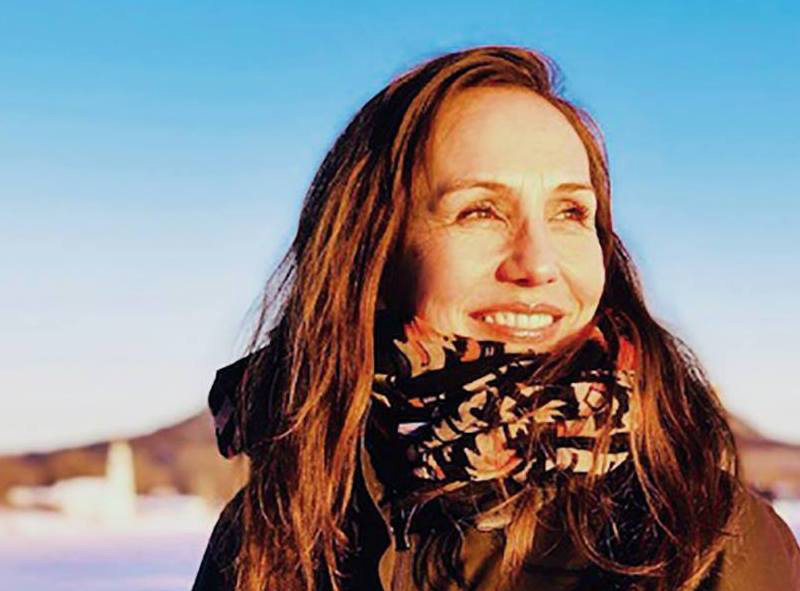A group of Indigenous women in leadership roles came together online today to kick off a conversation they hope will empower women and bring an end to gender-based discrimination in their communities and politics.
The webinar was hosted by Carrier Sekani Tribal Chief Mina Holmes and focused on the Assembly of First Nations’ Resolution 13, which passed in December and called for an independent investigation to end sexual-orientation and gender-based discrimination within the organization.
Chief Doris Bill with the Kwanlin Dün First Nation in the Yukon seconded the resolution, which was moved by Khelsilem of the Squamish First Nation.
Bill said she’d like to see other communities following the example set by the AFN and addressing discrimination.
“We often say that if you’re not standing up against these kinds of issues, then you are just standing by,” she added. “You’re not part of the solution.”
Holmes and Bill were joined by AFN Yukon Regional Chief Kluane Adamek and Annita Mcphee, former Tahltan Central Government president and current executive director at the Canadian Parks and Wilderness Society — British Columbia.
“I have felt I’ve been suffering in silence,” Holmes said. “It’s a horrible thing to carry on a daily basis.”
Holmes said “something just sparked” when she heard about the AFN resolution, and she plans to bring a draft resolution to the Carrier Sekani Tribal Council at its next annual general assembly in September.
“We realized this should be a larger public conversation,” she said. “I know there’s a lot of interest from the communities we work with, all over B.C. and I think all over this country.”
Holmes spoke to The Tyee previously about her experience as tribal Chief of the seven-member Carrier Sekani Tribal Council and the gender-based discrimination she experiences within her community.
“It can be really exhausting and defeating,” Holmes said in an interview, describing self-doubt, anxiousness and symptoms of depression as a result of the challenges with her job and because of a lack of open conversation about these issues highlighted in the online webinar.
Holmes, the third female tribal Chief, said those who held the role before her also experienced bullying and lateral violence. She would like to ensure it does not happen again and that healing from those experiences occurs, she said.
“This gender bias, harassment, sexual harassment, bullying has to be looked into and it has to end. Because we cannot continue this way and expect young folks to step up into leadership, into such a toxic environment,” she said. “There’s no way I would encourage my daughters to be in this arena until we address the systemic deep bias of women, particularly women leaders.”
Catherine Lessard was in her late 20s when she became the first female and youngest person ever elected to Nak’azdli Whut’en First Nation council and vice-tribal Chief with Carrier Sekani Tribal Council.
She said the experience taught her a lot about who she is as a person and woman.
“I wasn’t that old, and I was feeling for the younger ladies and then I understood how all the females that I looked up to in leadership roles, what they had to go through,” says Lessard, who describes bullying, intimidation and sexual comments during her time on council.
“It made me realize how powerful and strong our matriarchs are to have put up with a lot of this stuff that we see.”
She was pregnant with her youngest at the time and was told she would be better off staying home with her kids.
That’s not how she understands the traditional role of women in her community.
“From my education and knowledge, I understand that we were a matriarchal society and even today women, and especially children and Elders, are held in high regard,” she said. “Women gave birth and life, so they’re traditionally held in high regard.”
But that perspective has shifted, said Lessard, who resigned early from her position, exhausted by the bullying, single parenting and full-time work.
“It has turned me off,” she said about whether she’ll return to politics. “I just don’t know if I have it in me to stand up to that stuff again.”
She added that the problem isn’t limited to Indigenous communities.
“Whether you’re First Nations or not, it’s the glass ceiling effect,” Lessard said.
Last month, Jessica McCallum-Miller stepped down from Terrace city council citing systemic racism and sexism in a social media post announcing the decision. McCallum-Miller was both the youngest and first Indigenous person elected to the council.
“I felt unheard and/or unsupported when discussing these issues at the Council Table,” she said in her post. “Due to this, in March of 2020 my mental health and Spiritual well-being had suffered so much that I almost took my own life.”
The Union of BC Indian Chiefs responded with an open letter saying that it was alarmed and disappointed to learn about McCallum-Miller’s experience and that it is “the same treatment that has defined Canada’s colonial legacy.”
Tannis Reynolds is a councillor with the Stellat’en First Nation, a member nation of the Carrier Sekani Tribal Council. She said she’s experienced discrimination as a woman throughout her life, something she said was adopted into Indigenous culture.
“That idea that women are lower than and have to be of service to men is an idea that did not come from us,” she said. “Our people have a matriarchal system where we belong to our mother clans and women are leaders in our communities.
“But in the political system, it’s very much that colonial system.”
In almost a decade on council, Reynolds said she’s had to work twice as hard to be heard and has thought about giving up.
“I don’t think I would ever stop working for my people, but I found it very difficult to be to be in leadership,” she said.
“We adopted that culture into our societies. We’re fighting for dignity and respect for Indigenous people. But on that second level of discrimination against women, we’re fighting for dignity and respect for Indigenous women, just like the settler women had to fight for dignity and respect as well.”
She said she sees women shying away from leadership roles because of this “all the time.”
“Sometimes it gets to the point where people are attacking you on so many levels that it doesn’t seem like it’s really worth it,” she said. “The only reason why you keep going is because you love your people, and you love your community.”
At today’s webinar, Bill said the conversation about gender-based discrimination is “long overdue.”
She said the fact that the AFN resolution passed with 78-per-cent support is significant.
“Change is hard. It’s very hard, and it’s even harder when you look inside yourself, when you look internally, and that’s what this is designed to do,” she said. “It’s not aimed at any one individual. That was not an intended purpose.”
Instead, the women described taking a positive approach to battling discrimination through supporting one another and working with men to proactively address their role in gender discrimination.
The purpose, the women emphasized, was to start a conversation, support one another and find ways to engage all genders in a positive discussion about gender-based and sexual-orientation discrimination.
“How are we going to make it better for the next generation coming behind?” Adamek asked during the presentation.
“I feel the responsibility to make things better than they are now. The women who have come before me have certainly done the same, and I want to thank them for that.” ![]()
Read more: Indigenous, Rights + Justice, Gender + Sexuality
















Tyee Commenting Guidelines
Comments that violate guidelines risk being deleted, and violations may result in a temporary or permanent user ban. Maintain the spirit of good conversation to stay in the discussion.
*Please note The Tyee is not a forum for spreading misinformation about COVID-19, denying its existence or minimizing its risk to public health.
Do:
Do not: